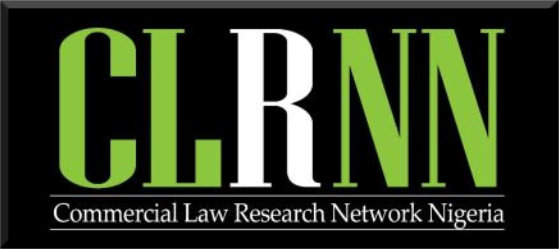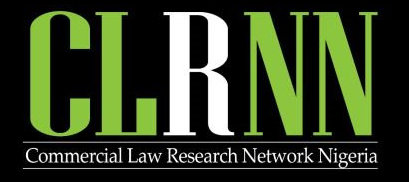by John Onyido, Bisola Scott and Sandra Eke
 Introduction
Introduction
Globally, Small and Medium Scale Enterprises (SMEs) largely contribute to the development of host economies, particularly in developing countries like Nigeria. SMEs play significant roles in providing employment and job opportunities, and account for about 90% of businesses and more than 50% of employment globally. The outcome of a recent survey conducted by the National Bureau of Statistics (NBS) and the Small and Medium Enterprises Development Agency of Nigeria (SMEDAN) indicates that Micro, Small and Medium Scale Enterprises (MSMEs) contribute to nearly 50% of the country’s GDP and account for over 80% of employment in the country. However, despite this enormous potential of the sector, SMEs are bedeviled by several challenges ranging from improper legal structure, access to market and legal support, funding, and commercialisation issues vis-à-vis delays in recouping their investments.
nearly 50% of the country’s GDP and account for over 80% of employment in the country. However, despite this enormous potential of the sector, SMEs are bedeviled by several challenges ranging from improper legal structure, access to market and legal support, funding, and commercialisation issues vis-à-vis delays in recouping their investments.
The rise of the internet age has revolutionised and expanded the traditional methods of doing business, and even with its attendant benefits, it exposes businesses, inclusive of SMEs, to various kinds of risks, necessitating the need for adequate protection of their emergent legal rights.  Intellectual property rights (IPRs) are part of the essential legal rights SMEs need to safeguard to ensure adequate protection, maximisation of benefits, and to enhance profitability. They are valuable business assets which SMEs can rely on to gain and maintain a competitive edge in the marketplace.
Intellectual property rights (IPRs) are part of the essential legal rights SMEs need to safeguard to ensure adequate protection, maximisation of benefits, and to enhance profitability. They are valuable business assets which SMEs can rely on to gain and maintain a competitive edge in the marketplace.
IPRs have the potential to stimulate international trade, encourage foreign direct investments and broaden the international distribution of goods and services. In this essay, we would shed more light on some relevant IPRs safeguards for SMEs, highlight some challenges faced by SMEs and discuss some incentives available for SMEs to thrive effectively in Nigeria.
Essential preliminary steps that must be taken by SMEs
One of the most common mistakes SMEs make at the initial startup phase of their business is failing to establish a robust legal structure for their business. While it is tempting for SMEs to dive into the vision of their company and start making their ideas a reality, it is essential that they take necessary steps to guarantee adequate legal protection of their businesses at the preliminary stage. From conducting legal due diligence on potential business partners to entering relevant pre-incorporation and post incorporation agreements, legal protection of their tangible and intangible rights, SMEs can ensure adequate protection and exploitation of their rights. One of the most essential measures every SME must consider at their initial startup phase is the protection of IPRs. IPRs are valuable business assets which businesses can rely on to gain and maintain a competitive edge in the marketplace. They protect creations of the mind and could provide high returns, consumer recognition and patronage if they are leveraged upon and adequately protected.
IPRs may be protected as trade secrets and confidential business information, designs, trademarks, copyrights, and patent rights, if they satisfy the protection requirements for each category of IP protection. These business assets do not only require protection from the public or competitors but also employees who have access to and/or are involved in the creation of the assets in the course of employment. Exposing these assets to employees in the workplace without adequately implementing protective measures pose risks of intellectual property theft and infringement, which may result in low financial returns for a business causing it to lose its strategic edge in the marketplace. Some of the IPRs SMEs need to protect are highlighted below.
Trademark: A trademark is an essential intellectual property right which serves as a unique signifier of a business, capable of distinguishing the goods and services of one company from those of another. Trademarks are logos, designs, drawings, symbols, taglines, numbers, three-dimensional features, or a combination of any of these adopted by a business entity to distinguish its products/services from the competition. To ensure maximum protection, a trademark should be registered with the Nigerian Trade Marks, Patents and Designs Registry especially because a trademark infringement action can only be instituted in respect of a registered mark. Several SMEs in Nigeria are unaware of the importance of protecting their trademark(s) and thus carry on their businesses without registering them. This usually opens the door for infringers who intend to benefit from the goodwill and reputation which an SME has garnered over its trademark causing the enterprise to suffer losses from such actions.
Patent: A patent is an exclusive and assignable monopoly right granted to an inventor over his patentable invention for a specified period. An invention is patentable if it is new or constitutes an improvement of a patented invention, results from inventive activity and capable of industrial application. SMEs are largely involved in the introduction of new technologies and innovations into the market. However, a large percentage of them are unaware or have failed to take advantage of the benefits of protecting their inventions from unauthorised exploitation. Oftentimes, they are carried away with the excitement of launching new products and inventions and only begin to take steps towards protecting their IPRs at a late stage in their business or after an infringement has occurred. Asides ensuring adequate protection of an invention, a patent provides SMEs with the opportunity to commercialise their rights by entering into licensing agreements with or granting outright transfers to intending users of their patent.
Copyright: Copyrights are essential intellectual property rights available to SMEs to protect their creative works, in the form of Literary, Musical, Artistic or Cinematographic works or adaptations of any of these if they are eligible for protection. For a creative work to be copyrightable, such work must be expressed or fixated in some medium, such as paper, diskettes, flash drives, CD-ROM, DVDs etc., from which they can be perceived, reproduced, or communicated to the public. Although registration is not required to obtain copyright protection, the Nigerian Copyright Commission (NCC) has established a voluntary copyright notification scheme for owners of copyrights to lodge their works with the Commission. The database of the NCC can assist authors of creative works to protect and enforce their rights adequately. In cases of infringement, SMEs who have lodged their works with the NCC can easily utilise the acknowledgement certificate issued to them by the NCC as prima facie evidence of ownership of the work.
Trade Secrets: Confidential information of an SME may be protected as trade secrets if they are commercially valuable, not known to the public, and reasonable steps have been taken by the proprietors to maintain their secrecy. To prevent the information from falling into the public domain, SMEs are advised to sign non-disclosure and non-compete agreements, introduce trade secret policies at workplaces, label sensitive documents as proprietary and confidential, and restrain employees, partners and contractors access to such information, except on a need to know basis.
Some challenges faced by SMEs in enforcing their IPRs in Nigeria
Regardless of the significant contributions of SMEs in Nigeria, there are several challenges that hinder their effective growth, development and the maximisation of their rights, some of which we have identified below.
Poorly drafted and Obsolete laws: SMEs are faced with the challenge of effectively enforcing their rights because of the obsolete nature of some of our laws, which do not possess adequate penalties to effectively deter infringers. This shortcoming is a major drawback for SMEs desiring to enforce their rights and in combating piracy and counterfeiting. For instance, the Merchandise Marks Act stipulates a penalty of only N100 fine or six (6) months imprisonment for any person who commits offences relating to the use and application of false trademarks or false trade descriptions.
Litigation drawbacks: The slow process of justice administration in Nigeria has greatly deterred most litigants from seeking redress in court. This is due to the worrisome level of incessant adjournments of cases and the nonchalant attitude of judicial workers in handling cases. This is a major setback for SMEs, who are dissuaded by the judicial system and eventually either forego enforcing their rights or opt for alternative remedies.
Accessibility to legal support and information: Most SMEs are usually faced with the challenge of obtaining legal assistance at the startup phase of their business as they are unable to afford the services of a knowledgeable lawyer and sometimes experience difficulties in finding a lawyer with the specific expertise they require. Consequently, they encounter a lot of legal issues due to improper or inadequate legal measures and safeguards.
Inefficient IP Registries and regulatory agencies: The inefficient services delivery of some IP registries of regulatory agencies, has dissuaded a lot of SMEs from proceeding with the process of obtaining their registration or licenses with these agencies. For instance, the long bureaucratic process for finalising a trademark registration is a major deterrent to SMEs who intend to procure trademark registrations. The entire process of obtaining a trademark registration could take as long as 10 – 18 months on average.
Some available incentives to support SMEs in Nigeria
Amidst the numerous challenges faced by SMEs, there are several initiatives and incentives propelled by both private and public entities to support the growth and development of SMEs in Nigeria. Private entities like law firms, IP associations and law societies organize law clinics and webinars where legal advisory are freely provided to SMEs. Most law firms also make provisions for discounted rates on their fees to encourage and accommodate SMEs or startups. Similarly, public entities like the Central Bank of Nigeria (CBN) and the National Agency for Food and Drugs Administration and Control (NAFDAC) have launched some initiatives and incentives to support SMEs in Nigeria. For instance, NAFDAC launched an electronic registration platform and significantly reduced the cost of product registrations by 75% to ease their regulatory overload and enhance the quality of their services. The National Assembly enacted the Secured Transactions in Movable Assets (STMA) Act which provides for responsible lending to MSMEs and an opportunity of using their movable assets to access credit. The STMA Act provides legislative backing to previous efforts of the CBN to facilitate access of SMEs to debt finance.
In addition, the new Finance Act 2019 recently amended the Companies Income Tax Act and provided exemptions for small companies with an annual turnover below N25 million from paying Companies Income Tax and provided for a reduction of Company Income Tax to 20% from 30% for Companies with an annual turnover of between N25million and N100million.
Apart from the above stated benefits, there are many other opportunities created by multilateral agreements like the African Continental Free Trade Area Agreement, the World Trade Organisation and other regional trade agreements which provide developing and least developed countries and SMEs with wider access to regional and international markets and opportunities to expand their reach.
Conclusion
SMEs play a significant role in the growth and development of national economies. They are responsible for driving innovation and employment creation. Regardless of their importance, they face several challenges with the protection, enforcement, and exploitation of their rights. In addition to protecting their tangible rights, SMEs need to pay particular attention to safeguarding their intangible rights in the form of IPRs. The protection and proper exploitation of IPRs is vital to the promotion of innovation, growth, and advancement of every nation. It facilitates easy access to novel technologies, enhances the goodwill of SMEs and provides ample opportunities for the commercialisation or exploitation of their innovations. It is therefore imperative for SMEs to adequately safeguard their IPRs to weather the storms that are likely to occur with unauthorised appropriation and abuse of their rights.
John Onyido is Partner and Head of the Intellectual Property and Technology Department of SPA Ajibade &Co. He has represented multinational companies in the protection and enforcement of their IP rights in Nigeria, appearing before superior courts of record in trademark enforcement proceedings. He can be reached at jonyido@spaajibade.com.
Bisola Scott is an Associate in the Intellectual Property and Technology Department of SPA Ajibade &Co, where she advises clients on a wide range of intellectual property rights issues, including copyrights, patents, trademarks and designs. She can be reached at bscott@spaajibade.com.
Sandra Eke is an Associate in the Intellectual Property and Technology Department of SPA Ajibade &Co, where she routinely advises high net worth local and international clients on a range of IP issues.

